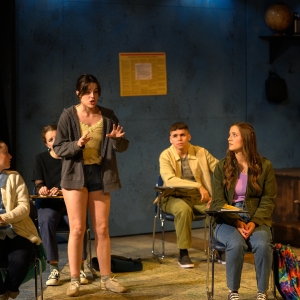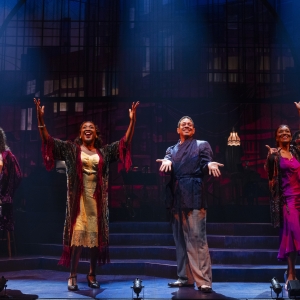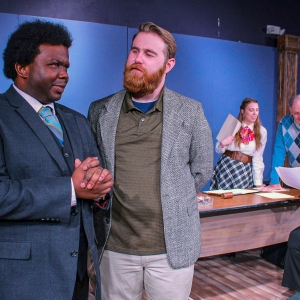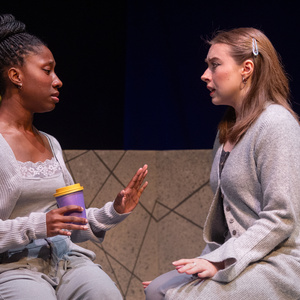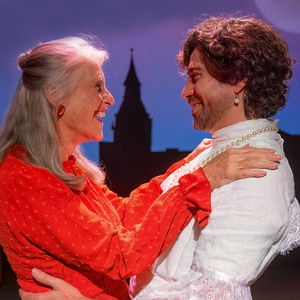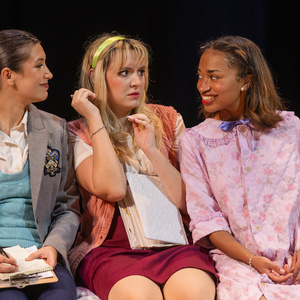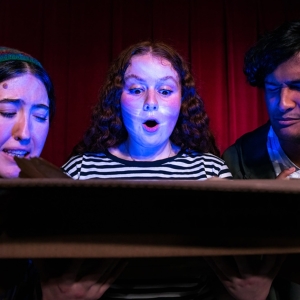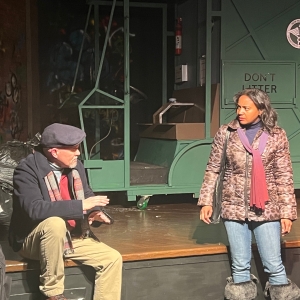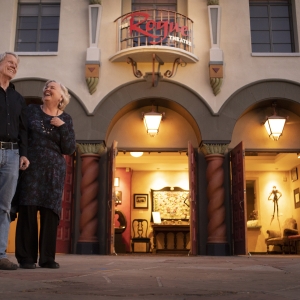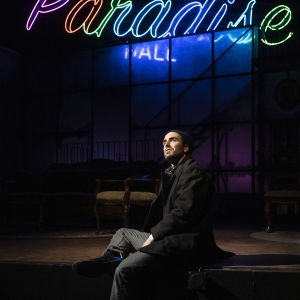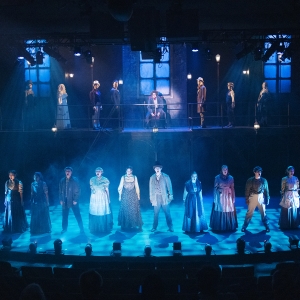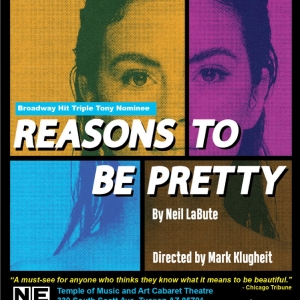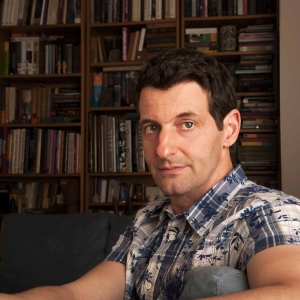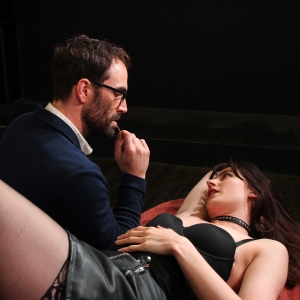Review: LOVE AND INFORMATION: TFTV Takes on Churchill's Collage at School of Theatre, Film & TVNovember 24, 2025In a piece defined by moments that dissolve as quickly as they form, the dedication lends the evening a quiet gravity, where the act of gathering in the Tornabene becomes its own gesture of remembrance. In many ways, the Tornabene itself becomes a collaborator. The theatre's quirky yet flexible geometry resists the predictability of a conventional stage picture, requiring actors to carve presence from angles, tiers, and distances that can shift the emotional logic of a moment.
Feature: Tony Award-Winner Lea Salonga Is Coming Full Circle on the World StageNovember 10, 2025Even in a nation celebrated for its singers, Lea Salonga occupies a realm entirely her own. Her distinction lies not in her crystalline tone, but in the intelligence that animates it—the deliberate thought, the emotional architecture of each phrase. She sings with an actor's intuition and a philosopher's clarity. Her voice doesn't simply ascend; it unveils.
Review: CLOUD 9: The Inheritance of Empire at The Rogue TheatreNovember 11, 2025Some art offends not out of malice, but out of necessity. It erodes our defenses and upsets the hierarchies we've internalized for generations. Cloud 9 thrives in that awkward space where laughter and shock trade places. Caryl Churchill's comedy, though seemingly gratuitous, diagnoses our assumptions about who truly holds power.
Review: VANITIES, THE MUSICAL: Reflections in Three Mirrors at School Of Theatre, Film, & TelevisionOctober 8, 2025At its core, VANITIES is a meditation on time—how it shapes and betrays us, and how friendship endures in its wake. It follows three Texas cheerleaders whose youthful confidence carries them into adulthood with varying degrees of success and self-delusion. Their lives unfold across three decades, each scene tracing the arc from the casual optimism of youth to the sobering compromises of maturity.
Review: Uncharted Waters: Douglas Williams’ SHIP at Live Theatre WorkshopAugust 12, 2025Of course, off-color references are only gratuitous when taken out of context. In SHIP, Williams blends incisive commentary with dark, outrageous comedy, painting a vivid portrait of a unique, idiosyncratic trio. The play balances moments of reflection with incidental, often crude, humor, thereby crafting a jaded yet emotionally complex rhythm.
Review: Finding Grace In Things We Throw AwayMay 1, 2025Beneath the jokes and sharp-edged dialogue is a rumination on labor, grief, and human connection in unlikely places. Garbage becomes literal and symbolic: the physical refuse they haul daily and their emotional baggage. For all its grime, the job becomes a kind of secular ritual—repetitive, humbling, oddly revealing. What we throw away says more about us than we realize, and Joelle leans into that idea with restraint and precision.
Review: THE MINUTES Exposes the Complicity of SilenceApril 29, 2025At the heart of THE MINUTES lies the bitter debate over the town's origin—a controversy surrounding a long-commemorated event that reveals uncomfortable contradictions under closer scrutiny. What begins as a procedural discussion about a public monument gradually evolves into a broader struggle over whose version of history will prevail and at what cost.
Review: JOHN PROCTOR IS THE VILLAIN Reframes An American MasterpieceMarch 5, 2025Kimberly Belflower's writing blends academic fluency with the unfiltered energy of teenage argot. Crisp and emotionally charged, the script expertly transitions between scenes from The Crucible and the students' classroom debates, crafting a narrative that is as urgent as it is thought-provoking.
Review: Sultry, Soulful, and Spectacular: BLUES IN THE NIGHT Delivers at Arizona Theatre CompanyFebruary 3, 2025Curated in collaboration with musical director Sy Johnson, acclaimed director Sheldon Epps first staged BLUES IN THE NIGHT in 1980 as a musical revue. The show follows three women and one man, each offering a different take on love and loss. Structured around legendary songs by Bessie Smith, Duke Ellington, Johnny Mercer, et al., it debuted on Broadway in 1982 and earned a Tony Award nomination for Best Musical.
Feature: The Rogue Theatre's Anniversary Season Celebrates 20 Years of Pushing BoundariesAugust 29, 2024Whether by design or coincidence, The Rogue Theatre kicks off its 20th season with a vivid and prophetic opener: THE SKIN OF OUR TEETH by Thornton Wilder, a playwright acclained for his fierce deconstruction of 20th-century norms. This selection sets the tone for a remarkable season, reaffirming the theater's dedication to subversive yet edifying productions.
Interview: Aaron Cammack Talks Acting, Recovery, and New Role at Arizona Theatre CompanyJuly 24, 2024Aaron Cammack, an Arizona actor, has navigated a multitude of personal setbacks, proving his character in a career that demands inexorable resilience. The newly minted, 2024-2025 Resident Artist at Arizona Theatre Company treads the boards on stages big and small. Aaron stays sharp and ready, undertaking everything from experimental two-handers in a 90-seat house to full-blown classic musicals, TV, and feature films. His prodigious talent is matched by a consummate focus on his craft. It's only a matter of time before he sets foot on a Broadway stage.
Review: SWEENEY TODD Strikes All the Right Notes at the Marroney TheatreMarch 7, 2024I've just highlighted a long list deserving of recognition, if for no other reason than to remind audiences of the invisible force that fuels this pre-eminent theatre department. I'm aware of the unresolved public trauma caused by the university's decision to discontinue the program. Intentional or not, SWEENEY is the apt choice; the metaphor of slitting one's throat resonates with an aggrieved following, for that's what it must feel like to lose a vital artistic resource. And that, my good friends, is the real tragedy.
Feature: Neil LaBute Play Takes Center Stage at ATC CabaretOctober 16, 2023To his credit, Klugheit sees the controversy as a chance to engage an otherwise piercing inquiry into our cultural obsession with physical beauty. REASONS TO BE PRETTY paints an unflinching portrait of seemingly reasonable Americans in emotional crisis -- socially well-adjusted folks who suffer from profound insecurity and power struggles.
Interview: Elaine Romero Talks Culture, Border History, Human Rights, and World Premiere of EL TIRADITOSeptember 12, 2023This weekend, Tucsonans have the privilege of witnessing the site through the lens of a master storyteller. The interview uncovers the inspiration, challenges, and profound insights that shaped Elaine's remarkable play. Renowned for her impressive repertoire that captures the emotional essence of culture and history, Elaine charts the play's development while keeping the pulse on the spiritual underpinning of her work.
Interview: Greg Pierotti: THE LARAMIE PROJECT Co-Creator Directs Timely Revival, Talks Commemoration of Matthew Shepard's PassingSeptember 4, 2023In this interview, we have the privilege of evoking Greg Pierotti's insights. He is a University of Arizona Theatre professor, a distinguished artist, and the co-author of THE LARAMIE PROJECT, which he now directs at the university. The script evolved from his work with Moisés Kaufman and the renowned Tectonic Theater Project in New York City. The company is best known for developing new plays using 'Moment Work,' a trademarked playwriting method that employs rigorous research and collaboration in a laboratory environment. The process is a significant part of Pierotti's work, which resides at the intersection of theater and anthropology.
Review: VENUS IN FUR Heats Up the Stage at Live Theatre WorkshopAugust 10, 2023Subversive and riveting, David Ives's clever adaptation of Leopold von Sacher-Masoch's novella titillates and shocks, delving into mythology while blurring the line between the divine and the pedestrian. In channeling Leopold von Sacher-Masoch, Ives's stab at foreplay is piquant and dangerous. Should the playwright continue to craft erotic content, he could secure a place among the genre-defining authors alongside Henry Miller and Anaïs Nin.



